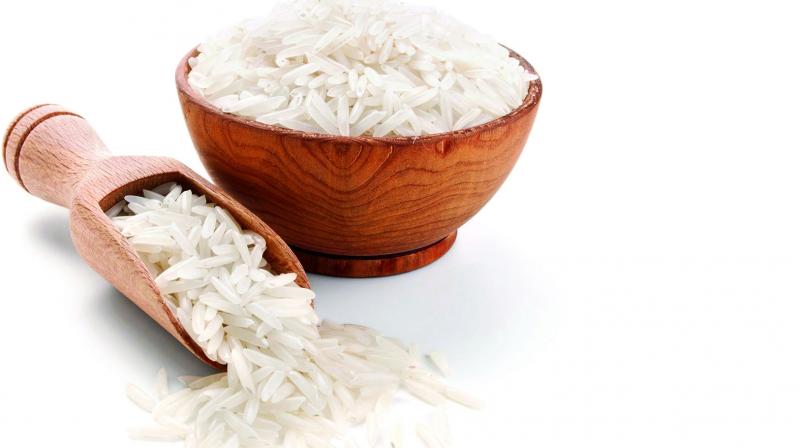Basmati aroma may be just grass spray
Adulteration of prized rice in hotels, markets unchecked.

Hyderabad: Around 40 per cent of Basmati rice sold in local markets and the biryani that is claimed to be made using the aromatic rice served in restaurants, is unlikely to be the real thing.
Consumers spend up to Rs 300 for a kg of Basmati rice. But traders often trick them by mixing in cheaper varieties that cost Rs 50 to Rs 60 per kilo. Dr Anupam Dixit, chief scientist at the Basmati Export Development Foundation Laboratory of the Agricultural and Processed Foods Exports Development Authority in Meerut, told this newspaper: “Adulteration of Basmati sold in the domestic market is very high. Even reputed companies are doing it.”
The lab tests more than 1,000 samples of Basmati every year. He said that in several cases the adulteration levels was 40 to 50 per cent. Pusa Basmati 1121 was adulterated with Sugandha 2, Sugandha 3; and Sharbati was a potent adulterant in Pusa Basmati-1.
“This is not an issue with exports as the Ex-ports Inspection Council and Agmark pass it after certification by a DNA analysis lab,” he said. Dr Dixit said traders spray an aroma extract from a grass on look-alike or non-Basmati rice to deceive buyers.
Domestic consumption of Basmati rice is al-most half the production and is rising in India, but no regular DNA analysis is done to detect adulterants. Mr A.K. Gupta, director of the Basmati Export Development Fo-undation, said, “There are no restrictions on DNA fingerprinting tests for domestic use. Anyone can get a sample tested. For exports, testing is mandatory to avoid rejection. the CDFD, which conducts DNA analysis, rarely receives samples of rice meant for domestic use.”
The State Food Laboratory has found that vermicelli was added to the Basmati rice in restaurants. The laboratory at Nacharam, that serves both AP and TS, tests the uric acid in samples of Basmati rice which would indicate the presence of pests. SFL’s chief public analyst in-charge N. Ravinder, said, “We do not do DNA analysis here. Food inspectors sometimes take samples and we check for worms. We are not checking the pesticide levels. There are standards for rice but no separate norms are set by the Food Safety and Standards Authority of India for Basmati rice.”
He said the lab had found that vermicelli was added in the biryani served in a restaurant, and booked cases. Vermicelli is made of wheat. While the checking for adulteration in the domestic market is lax, checks and testing for Basmati rice meant for export are rigorous as it must comply with the standards set by the importing countries.
CDFD that gets Basmati samples for purity testing from the Export Inspection Council of the Union ministry of commerce, and from Basmati rice exporters, found that 63 per cent of these are pure, 36 per cent have adulteration less than the permissible 15 per cent, and one per cent has more than 15 per cent.

